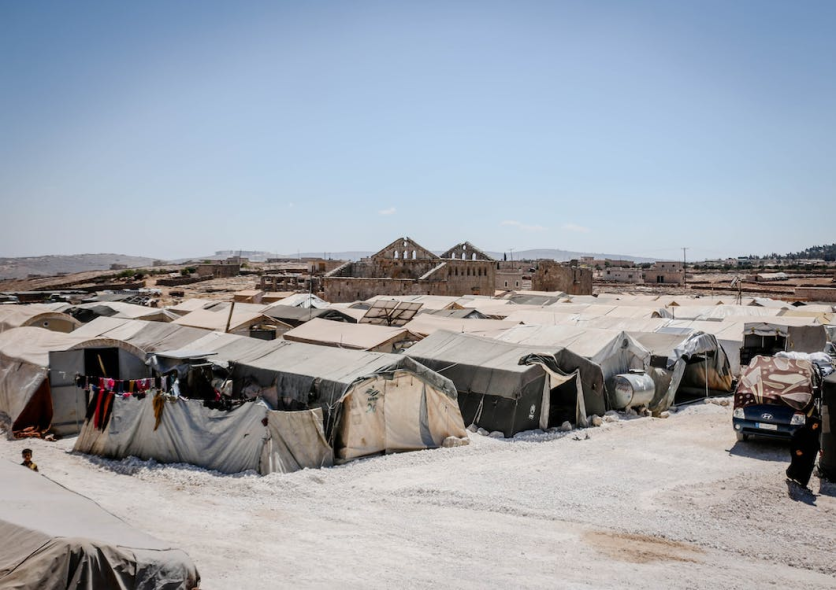
The Humanitarian Networks and Partnerships Weeks (HNPW) is an annual event organized yearly by the United Nations Office for the Coordination of Humanitarian Affairs. Hosted in Geneva, the HNPW is practical rather than geopolitical in focus, where people who work in aid discuss challenges and collaborate on solutions. The event gathers leading global contributors from the realms of humanitarian response, NGOs, academia, and the military.
I headed up two sessions there a couple of weeks ago to showcase the success and impact of IHC over the past 20 years in supporting the global humanitarian community and the work that we are doing to advance collaboration and innovation in the sector going forward.
At the IHC, we see no other route but this to mitigating the rolling crises of the 21st century, from resource scarcity to deadly climate and natural disasters.
Fortunately, the HNPW shows that collaboration in the field is alive and well, and most importantly, making an impact. While the Covid-19 pandemic presented challenges to fostering cross-sector partnerships at a time when they were needed most, collaboration is now firmly back on the table and in action on a daily basis.
The IHC's team, as always, was relentless in endorsing our model for collaboration on best-in-class humanitarian response missions.
In coordination with humanitarian emergency networks, such as ESUPS, the IMPACT working group, ASYREC, LOGie, and UNCTAD, we delivered a session on the role of digitalization and AI in supporting emergency preparedness and response.
The session brought together local and national entities, private sector actors, and custom officials, amongst others, to communicate our collaborative approach to humanitarian response through a scenario-based simulation on a cyclone hitting Madagascar.
The simulation demonstrated the substantial added value of coordination, leveraging four existing digital tools in the space to come to a solution. These included the IHC's Humanitarian Logistics Databank (more on this later), ESUPS's STOCKHOLM mapping tool, the LogIE logistics platform, and UNCTAD's ASYREC processing platform.
Centered on cross-sector coordination, the IHC's session at HNPW was the logical extension of our Members Global Meeting (MGM) held in Dubai last March, where we initiated a conversation on how to leverage existing supply chain networks to forge increased cooperation on the road to COP28, that will be happening in the United Arab Emirates later this year.
Indeed, the logistics humanitarian community is well represented across several groups and projects, including the United Nations Humanitarian Response Depot (UNHRD), the Logistics Cluster, the United Nations High Commissioner for Refugees (UNHCR), and the International Federation for the Red Cross and Red Crescent Societies (IFRC) - all of which participated in our MGM in March.
This collaborative, network-based approach has brought with it significant results, but like any network, the more relevant organizations engage, the stronger the input, and the more impactful and effective the output.
On that note, while the IHC already works with other partner hubs, like Panama and Italy, I would like to see many more hubs connect over the next decade, especially as the technology continues to develop, which will allow for greater coordination of efforts to maximize the benefits to those who most need it.
While we benefit from Dubai's strategic location as a regional hub for air and sea transport - which gives us a truly global reach - our unique model and tools can certainly be replicated to support more localized aid operations around the world.
Alongside networks of collaboration, sector-specific innovation was also close to the top of the agenda at HNPW.
There is a recognition that the humanitarian community can no longer wait to inherit technological gains from the military and civil society. We need to leverage and shape technology to shape the wants and needs of our sector.
Data gathering and analysis are crucial pieces of this jigsaw and present a skills deficit that needs to be overcome fast.
At the IHC, we launched the Humanitarian Logistics Databank in Dubai in 2018, and it's been vital in streamlining our operations, not just in Dubai but across our partner hubs also.
The Databank serves as the central node in a network of coordinating humanitarian organizations, supporting information-sharing on aid stocks and flows.
For example, at any given moment, an aid organization in South America can see how many tents, medical kits, and food packages are available and amend their shipments to ensure that whatever aid is sent to the disaster zone is exactly what is needed.
Data may come from different organizations, but we are all united in the same goal. The ability to coordinate efforts to ensure needs are met as quickly as possible makes a smoother, more cost-efficient, and, more importantly, more meaningful impact.
Accurate, up-to-the-minute information based on real-time customs data at the fingertips of practitioners has the potential to transform our sector, just as it did with international trade and finance in the past.
In the humanitarian sector, we want to end information asymmetries and collaborate with a broad network of international actors to bolster emergency preparedness and cut response times.
These twin strands of innovation and collaboration are paramount to the resolution of the 21st century's 'wicked' problems - so-called because of their challenging nature and requirement of often contradictory solutions.
To name but a few, consider the cruel reality that the communities suffering most from the climate crisis are the worst prepared to fight back against it. Or think of the unbreakable link between both mass migration and resource scarcity with political instability. Many of today's crises are driven by a convoluted combination of climate change, disasters, conflict, and instability.
These are wicked problems, to say the least, and we don't stand a chance of putting them right without an informed approach, a united core, and world-class technological capabilities.
I do not think that many people, particularly from the humanitarian sector, would disagree with this approach. Moreover, they will find willing partners for collaboration at Dubai's International Humanitarian City.





